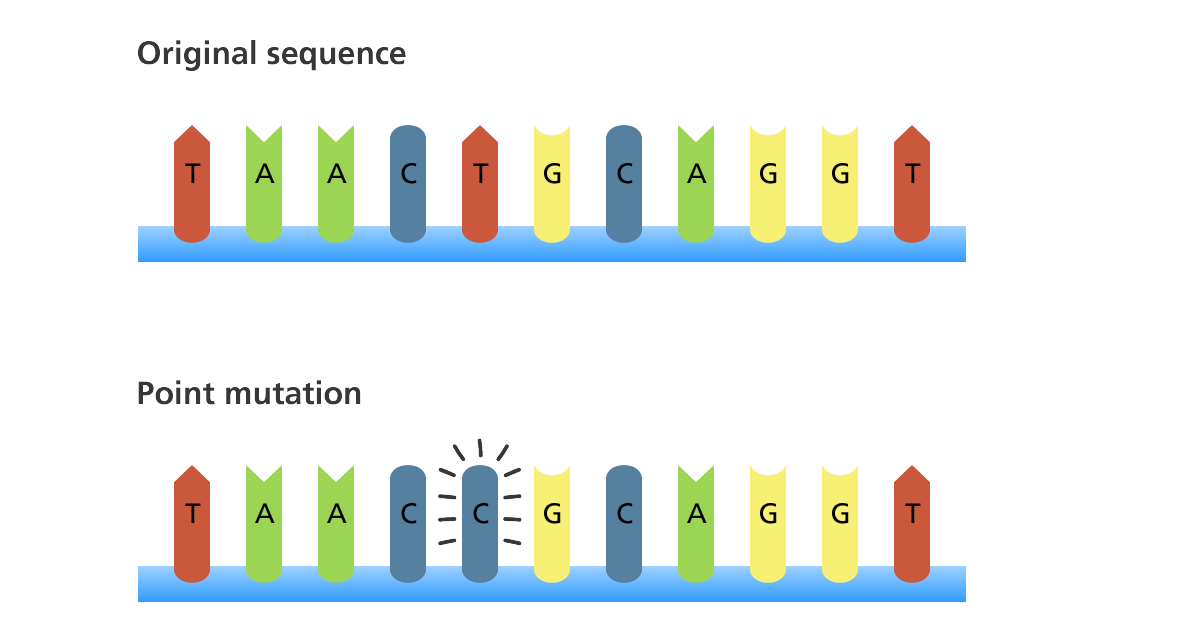2.9 Mechanisms of Evolution: Mutation
What is mutation?
Mutation is the source of all genetic variation. Without mutation, evolution would not happen. Mutation on its own can cause evolution and mutation is a very important influence on the other mechanisms of evolution.
What is mutation? DNA is composed of four different nucleotides. The names of the nucleotides are shortened to the letters A (adenine), T (thymine), G (guanine), and C (cytosine). A gene is composed of a series of A’s, T’s, G’s, and C’s in a certain order, and the specific sequence of these nucleotides influences the traits that each organism has.
Mutations arise from errors in DNA replication when an organism produces offspring. The cellular machinery that replicates DNA is not perfect–it occasionally makes errors. One type of error is a change from one nucleotide to another, like a change from a T to a C (Figure 2.11). Another error might be the deletion of one or more nucleotides. We will learn more about these and other types of errors in Chapter 4.
Most mutations do not cause any changes to an organism’s traits, but some mutations cause large changes. For example, the deletion of the 1,524th nucleotide in a gene called CFTR can cause a human to have the disease cystic fibrosis. Many mutations only cause changes in an organism’s traits when they occur in combination with other mutations.

Mutation is the source of variation
A population has high genetic variation when there are many different variants of genes within the population. Mutation increases the level of variation because it can create new gene variants. We’ll learn in the following section how important variation is for our next mechanism of evolution – natural selection.
Ask Yourself
Variation is essential
Without differences between the individuals in a population, populations cannot change over time—that is, they cannot evolve. Some features must exhibit variability so that change is possible. This variation arises when novel genes are produced as mutations. In other words, mutations—random genetic changes—are the ultimate source of variation in changing populations.
When a novel mutation arises, the population has changed; thus, mutation alone is a mechanism of evolution. However, the occurrence of a single random mutation is unlikely to have a profound effect on a population. Other evolutionary mechanisms—such as natural selection, migration, and drift—play a larger role in shaping the diversity we see on earth today.
However, without this pre-existing and recurring variation, we would not have an evolutionary story to tell.
Content on this page was originally published in The Evolution and Biology of Sex by Sehoya Cotner & Deena Wassenberg and has been expanded and updated by Katherine Furniss & Sarah Hammarlund in compliance with the original CC-BY-NC 4.0 license.
- Image from yourgenome, Genome Research Limited, under a CC BY 4.0 license. ↵

